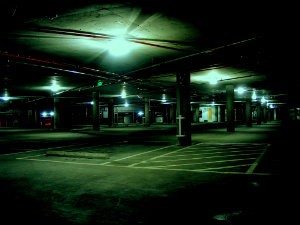Hiding behind a concrete post or car, lurking in dark corners: parking lots and garages provide more than enough hiding spots for criminals attempting to avoid detection. It is the responsibility of the owner of the parking lot or garage to maintain a reasonably safe environment in order to attempt to prevent crimes like assaults, robberies, abductions, and rapes from happening. If they took the necessary precautions, your injury could have been avoided.
Can I Sue As A Victim Of Shooting Or Gun Crime? Find out here. You may have an action in a negligent security lawsuit.
Under New York premises liability laws, the owner of any property can be held liable for injuries to an individual who is lawfully on their property if the injury occurs due to the owner’s negligence.
Negligence occurs when the owner of the property either knew, or should have known about a danger on the property and failed to fix it, warn the invitee, or put up signs warning of any potential dangers. In legal terms, an invitee is any one who enters another’s premises as a result of an express or implied invitation of the owner or occupant for their mutual gain or benefit.
Recently, a woman in Boston won a lawsuit against the owners of a parking garage after she was raped. The man who attacked her had also attacked another woman a few weeks before in the same garage. The plaintiff claimed that the owners of the garage had been negligent because of their failure to warn her of the previous attack. In addition, she alleged that the parking lot had vulnerable areas due to a lack of security guards and security cameras.
The victim’s attack occurred in one of these vulnerable areas, a dark stairwell.

As previously stated, parking lots and garages can be the perfect setting for a criminal to attempt a variety of crimes. Not only does the very nature of the layout supply ample hiding spaces, but the lots and garages are also only busy during a few times of the day. To top it all off, a criminal using a car as their means of escape would not be considered out of place.
At this time in New York, there are no specific laws other than the general premises liability law regulating parking lots and parking garages. However, there are reasonable security measures that many owners implement to keep their patrons safe. The National Institute of Justice has provided a “Crime Prevention Through Environmental Design in Parking Facilities” research paper detailing reasonable security measures.
With horrific stories of lives forever changed or lost being reported every day, the lack of law specific to security in parking lots can leave victims and loved ones feeling like they have few legal options. Banville Law is here to help victims seek justice.
On June 2nd, 2007 Kelsey Smith was forced into her own car in a Target parking lot by Edwin R. Hall. Hall took Kelsey to a wooded area where he raped, sodomized, and strangled her with her own belt. While the police were unable to save Kelsey, they were able to quickly identify Hall, and perhaps prevent him from committing future assaults, because of security cameras in the Target parking lot. Footage of Kelsey’s kidnapping was used in a TV show which highlights how surveillance video can be advantageous when solving crimes.
Kelsey’s Law was also passed in most states. At the time of Kelsey’s abduction, the police attempted to contact her cell phone provider for location services on her cell phone. The phone company was hesitant to release the information without a court order and in hesitating delayed the investigation. Kelsey’s Law states that all cell phone providers must give police any relevant location information in case of an emergency.
If you or a loved one have been the victim of a violent crime in a parking lot or parking garage in New York, it is possible that you could recover damages for harm done to you by filing a civil lawsuit against a negligent parking lot or garage owner.
To find out more about your legal rights, contact a negligent security lawyer at Banville Law today. Our experienced and knowledgeable premises liability lawyers will help you seek justice. Call (917) 551-6690 today for a free consultation.
Continue reading: